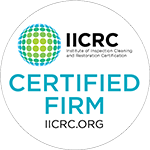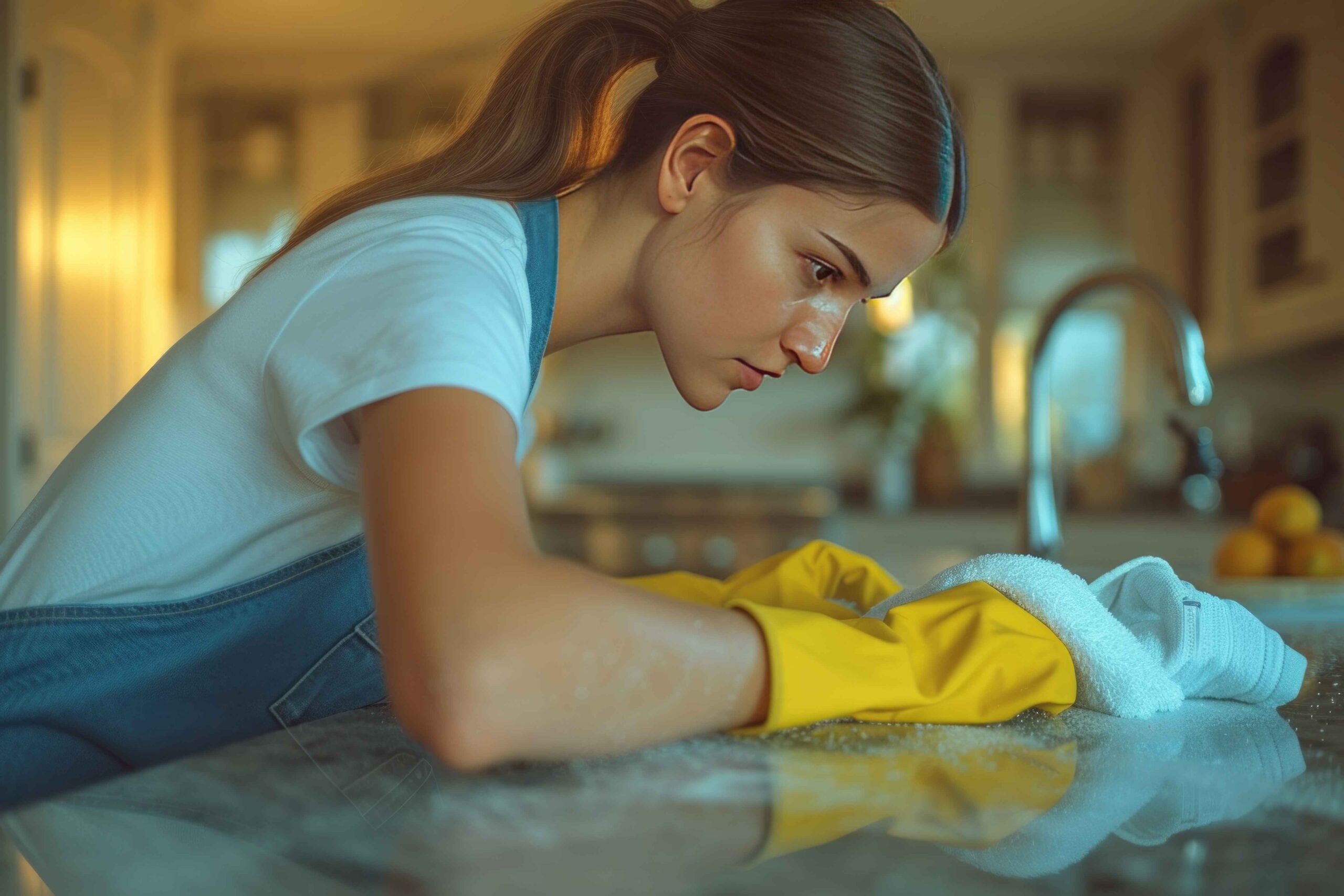Deep clean granite counters using a pH-balanced, non-abrasive cleaner and soft microfiber cloths. Transparent surfaces of debris, then gently wipe using a mild dish soap or granite cleaner. Residential cleaners in Folsom suggest avoiding harsh chemicals and abrasive materials to protect the surface. For tough stains, use a paste of baking soda and water. Properly sealing the counters at least once a year is vital. Granite is porous, so sealing prevents liquid absorption. Check the seal with a water test – beading water indicates an intact seal. Mastering these techniques will maintain your granite’s elegance.
Essential Supplies for Deep Cleaning
Gathering high-quality supplies explicitly designed for this delicate surface is essential to effectively deep-clean granite counters. The first item on your list should be a pH-balanced, non-abrasive granite cleaner. This type of cleaner is necessary as acidic or harsh chemicals can damage the granite’s sealant and lead to staining. Look for a cleaner specifically formulated for granite to guarantee optimal results.
Additionally, you will need microfiber cloths or soft, non-abrasive sponges to avoid scratching the granite surface during cleaning. These tools are gentle yet effective at removing dirt and grime without causing any damage. It is essential to avoid using rough scouring pads or abrasive materials that can leave scratches on the granite.
Lastly, consider using a high-quality granite sealer to protect your counters after cleaning. A good sealer will help maintain the granite’s natural beauty and protect it from spills and stains. Follow the manufacturer’s instructions carefully when applying the sealer to ensure proper coverage and protection for your granite counters.
Preparing the Granite Surface
Before starting the deep cleaning process, it is essential to prepare the granite surface to ensure effective results thoroughly. Start by clearing the counters of items such as appliances, food, or decorative pieces. This step guarantees that the entire surface is accessible for cleaning and prevents any objects from interfering with the process.
Next, gently dust or sweep the countertop to remove any loose debris, crumbs, or dirt. Use a soft microfiber cloth or a gentle brush to avoid scratching the granite surface. Pay attention to the edges and corners where buildup often occurs.
After dusting, prepare a solution of warm water and a mild dish soap or a specially formulated granite cleaner. Avoid harsh chemicals, acidic substances, or abrasive cleaners that can harm the granite.
Effective Cleaning Techniques
Utilize a gentle yet effective cleaning method to maintain the immaculate condition of your granite counters. When cleaning granite surfaces, opt for a pH-neutral cleaner or a mixture of mild dish soap and warm water. Avoid harsh chemicals like vinegar, lemon juice, or ammonia, as these can diminish the granite’s finish over time.
Create a paste using baking soda and water for tougher stains or stuck-on grime. Apply the paste to the affected area, then cover it with plastic wrap and let it sit overnight. In the morning, rinse the area with water and wipe it dry. This method helps lift persistent stains without harming the granite.
After cleaning, always dry the granite counters thoroughly to prevent water spots or streaks. Regularly cleaning your granite counters using these gentle yet effective techniques will help preserve their natural beauty and ensure they remain in top condition for years.
Maintaining and Sealing Granite Counters
Proper sealing is essential for protecting the surface and ensuring its longevity when maintaining granite counters. Granite is a porous natural stone that can absorb liquids and oils easily, leading to staining and potential damage if improperly sealed. To keep granite counters, it is recommended to seal them at least once a year, although high-traffic areas may require more frequent sealing.
Before sealing, ensure the granite surface is clean and dry to allow the sealer to penetrate effectively. Various types of sealers are available, including penetrating sealers and topical sealers. Penetrating sealers are absorbed into the stone, providing long-lasting protection without altering the appearance of the granite.
Regularly check the seal on your granite counters by dripping water onto the surface. If the water beads up, the seal is intact. If the water begins to soak into the granite, it may be time to reseal the counters to maintain their beauty and functionality.
Other Cleaning Tips:







